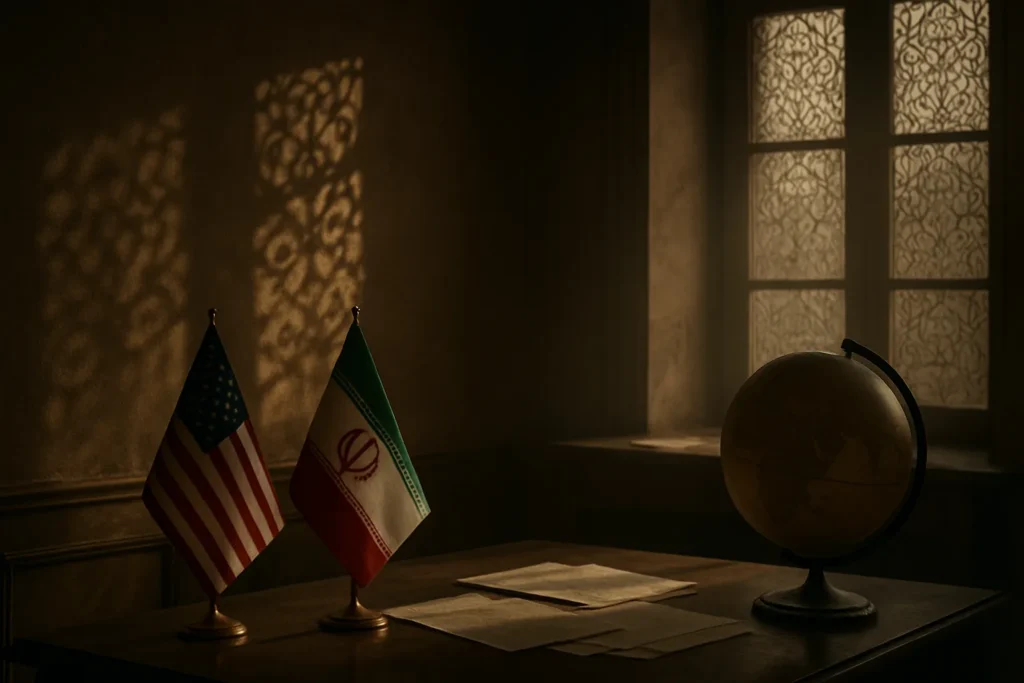Assassination Threats Cast a Long Shadow
Imagine a former U.S. Secretary of State—one of the country’s most protected and high-profile citizens—checking into a luxury hotel in Paris, unaware that halfway across the world, a team of foreign operatives is tracking his every move. This scenario didn’t unspool during the Cold War, but in 2022, as Iran orchestrated a near-successful assassination attempt on Mike Pompeo, Donald Trump’s top diplomat. The chilling episode comes to light in the upcoming book 2024: How Trump Retook the White House and the Democrats Lost America, as reported by The Washington Post and other leading news outlets.
Iranian hit teams operating on U.S. soil is not the stuff of spy thrillers—it became an urgent reality for American intelligence and the Trump 2024 campaign. Intelligence briefings in late 2024 detailed credible Iranian plots against U.S. officials, prompting sweeping changes to security on the campaign trail. The measures were unprecedented for a presidential campaign: decoy travel plans, ramped-up surveillance, layered protection at Mar-a-Lago, and a general sense of siege. These weren’t precautionary theatrics; they were close, responsive measures rooted in authenticated threats.
Why now? The context is critical. Pompeo served during an era defined by confrontational U.S.-Iran policy. After the Trump administration abandoned the Iran nuclear deal and pursued a campaign of “maximum pressure,” Tehran’s enmity toward key American figures like Pompeo and former National Security Adviser John Bolton escalated. According to Harvard security analyst Dina Esfandiary, Iran’s use of targeted violence isn’t simply retaliatory—it’s part of a broader playbook to intimidate and reshape the rules of engagement with the West.
Intelligence Divides, Political Games
The assassination drama unfolded as the Trump administration authorized airstrikes on Iran’s nuclear facilities. President Trump publicly claimed these strikes “totally obliterated” the sites. Yet, a classified Defense Intelligence Agency (DIA) report painted a different picture, concluding the attacks only delayed Iran’s nuclear ambitions by months, not years. The split within U.S. intelligence agencies became glaring as Trump-administration loyalists, including then-CIA Director John Ratcliffe and Director of National Intelligence Tulsi Gabbard, pushed back, pointing to new intelligence they said confirmed “severe damage” to Iranian sites. The debate quickly transcended technical assessment and barreled into the media and political echo chambers.
For those following U.S.-Iran relations, the chasm between public proclamations and behind-the-scenes analysis is all too familiar. In the aftermath of 9/11 and the invasion of Iraq, Americans were sold a tidy narrative—Weapons of Mass Destruction, imminent threat—while intelligence communities quietly splintered over the facts. A closer look reveals that politicizing intelligence is not only reckless, it imperils national security.
“When American politicians dismiss inconvenient intelligence or weaponize it for campaign soundbites, they play with fire—not just for themselves, but for every American at home and abroad.”
Layer on top of this tension the leak of the DIA’s preliminary report—a breach now under FBI scrutiny. The aftermath was swift: Senator Tom Cotton, Republican chair of the Senate Intelligence Committee, called for slashing the Office of the Director of National Intelligence from 1,600 to 650 employees, a drastic and highly partisan move that betrays a deeper mistrust of independent intelligence. Such efforts aren’t merely symbolic. They strike at the heart of what protects American democracy—a robust, well-resourced, and unafraid intelligence community.
Legacy of Threats—and Political Cynicism
How did assassination plots by a foreign adversary become just another campaign data point? The Trump campaign’s response to Iranian threats was, by some accounts, pragmatic: new protocols, security drills, double-blind travel routes. It’s not hard to see the logic. Presidential campaigns have become high-value targets, and this isn’t a challenge unique to Republicans. Yet, the underlying message—the calculation that the physical safety of public servants can be managed away with clever logistics—ignores a fundamental lesson of counter-terrorism. Security must be collective, coordinated, and grounded in trust, not bravado.
Beyond that, the decision to revoke protection for officials like Pompeo early in 2025, despite persistent Iranian threats, feels disturbingly cavalier. According to cybersecurity expert Sasha Havlicek, “Iran’s targeting of U.S. officials is a signal—if protection weakens, the threat resumes.” For Democrats and progressives, the core issue isn’t whether a particular administration handles its own security adeptly. Rather, it’s about whether the underlying system prioritizes sustainable safety for public servants, activists, and dissidents alike—a principle embedded in any just and equitable society.
American history offers sobering reminders of the costs of complacency. The attacks on diplomats in Benghazi in 2012, the wounding of Rep. Gabrielle Giffords, and the terrifying January 6th insurrection all laid bare the gaps in U.S. security for officials and institutions. Protection shouldn’t be subject to the whims of politics or shifting headlines.
On the broader world stage, these assassination plots are a test of America’s credibility and values. If the United States bends its intelligence policies, muzzles dissenting analysts, or marginalizes effective watchdogs, what message is sent—not only to rivals like Iran but to would-be authoritarians everywhere? Progressive values demand an unwavering commitment to transparency, institutional integrity, and the safety of all public servants, not just those favored by the ruling party.
Choosing Security Over Cynicism
Returning to the Paris hotel in 2022, it’s clear that America’s enemies grow bolder when they perceive cracks in our unity—and cynical manipulation of facts widens those cracks. Rhetorical chest-thumping about intelligence “obliterations” or slashing those who provide inconvenient truths does nothing to strengthen America. Security is not a partisan luxury—it is the bedrock of democratic legitimacy.
The next time you hear about threats to a public servant—regardless of party—ask whether America is responding with clarity, compassion, and collective resolve, or falling back on division and bravado. The answer will tell us far more about our future than any single plot or campaign drama.

